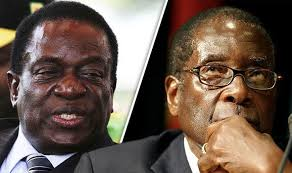Former opposition leader Nelson Chamisa has announced his return to full-time politics, affirming his commitment to Zimbabweans who see him as a symbol of democratic resistance against Zanu-PF’s decades-long rule. Chamisa’s declaration comes amid growing political tension following reports of Zanu-PF members pushing to amend the Constitution to extend President Emmerson Mnangagwa’s term from 2028 to 2030. Although Mnangagwa has publicly rejected the notion, Chamisa dismissed the idea as undemocratic and dangerous, stating it’s a desperate attempt to avoid the people and elections.
Chamisa’s return to frontline politics follows a period of uncertainty within the opposition after he lost control of the Citizens Coalition for Change (CCC) to Sengezo Tshabangu, who has been accused of being a Zanu-PF proxy. Chamisa emphasized that leaving the CCC is different from abandoning the people of Zimbabwe, whom he deeply respects and values. “I left the old vehicle only because Zanu-PF had captured and compromised it,” he explained. “As a matter of principle, leaving the old vehicle was necessary because people now know who is and who isn’t with them.”
The former opposition leader also launched a scathing attack on Mnangagwa’s governance, accusing him of punishing Zimbabweans for rejecting him at the ballot box. “After the 2018 and 2023 elections, my competitor, Mr. Mnangagwa, never forgave the people for voting against him and his party; instead, he has punished them with high taxes, deadening impoverishment, rampant corruption, misgovernance, poor services, and untold suffering,” Chamisa alleged. He reiterated that Mnangagwa’s 2023 victory was illegitimate, claiming the results were fraudulent and rejected by Zimbabweans and the international community.
Chamisa’s comeback signals renewed opposition efforts ahead of the next electoral cycle, setting the stage for another fierce contest over Zimbabwe’s leadership and democratic future. His renewed commitment to challenging Zanu-PF’s rule may reshape the opposition landscape and provide a credible alternative to the ruling party’s dominance.
END//..










